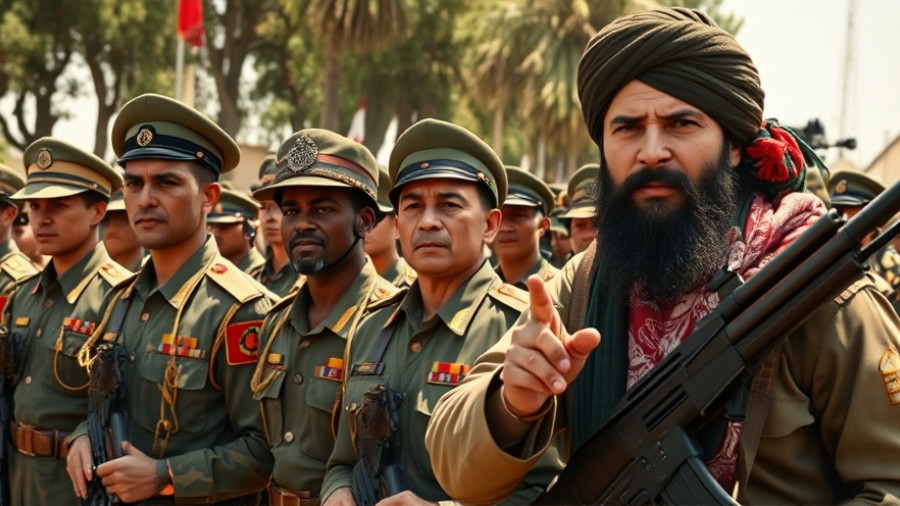
The Fragile State of Pakistan-Afghanistan Relations: A Deepening Crisis
Recent events have brought the fragile relationship between Pakistan and the Taliban in Afghanistan to a breaking point. Following the collapse of peace talks in Istanbul, where negotiations failed to yield a workable solution, Pakistan's Defense Minister Khawaja Asif issued a stark warning, threatening to 'obliterate' the Taliban regime. This escalation signifies a potential shift towards open conflict, which carries profound implications for both nations and the broader region.
The Unraveling of Peace Talks
Negotiations, mediated by Qatar and Turkey, were aimed at establishing a lasting truce following a series of deadly clashes along the border that claimed numerous lives. Pakistani officials returned from Istanbul with accusations directed at the Afghan delegation, claiming they engaged in deflection and failed to stay focused on the core issues, particularly the Pakistani Taliban's activities, which pose a significant security threat to Pakistan. The dialogues concluded without resolving critical issues surrounding border attacks and the Taliban's inability to curb the Pakistan Taliban's violent operations.
Historical Context of Tensions
The historical backdrop of mistrust between Pakistan and the Taliban frames the current crisis. Since the Taliban's resurgence in Afghanistan in 2021, relations have deteriorated sharply, largely due to increasing violence attributed to the Pakistani Taliban. Pakistan views the Taliban's failure to control this group as a critical security concern, while Afghanistan insists that it has no influence over the militants.
This narrative of blame has deep roots: Pakistan, often seen as the Taliban's historical ally, now finds itself grappling with the consequences of its previous support for the group. The ongoing conflict heightens the stakes, leading to a perilous game of chicken where both parties risk full-blown warfare.
Emerging Threats and Conflicting Interests
The rise of cross-border attacks has led to an escalation in military tensions, resulting in casualties on both sides. Recent reports cited an upsurge in attacks from the Pakistani Taliban, targeting military installations following a series of Pakistani airstrikes in Kabul. These confrontations not only threaten the lives of soldiers but also contribute to an increasingly hostile environment where civilian populations are caught in the crossfire.
Furthermore, the involvement of external players, including regional powers encouraging the Taliban to rein in the Pakistani Taliban, complicates the situation, as Afghanistan's government perceives these demands as interference in its sovereignty. The result is a complicated web of alliances and grievances that make resolution difficult.
The Path Forward: Options and Opportunities
As both countries are poised on the brink of conflict, alternative avenues for dialogue are essential. Analysts recommend renewed diplomatic efforts, perhaps under the mediation of third parties like China or international organizations, to foster communication that could prevent outright war. Historically, peace has been hard-earned between these two neighbors; a repeat of past missteps could lead to an even more entrenched conflict.
Economic dialogues, such as trade agreements or cooperative security arrangements, may also pave the way for a more stable relationship. However, given the deep-rooted suspicions and conflicting agendas, finding common ground and genuine cooperation remains a formidable challenge.
Community Impact: Understanding the Local Perspective
The repercussions of this conflict extend beyond the borders of Pakistan and Afghanistan, affecting local communities and economies. For residents and businesses in regions like Kansas City, understanding the complexities of international relations can cultivate a sense of global awareness and encourage local conversations about peace and stability. The impact of international tensions can lead to economic consequences, affecting markets and trade, which highlights the interconnectedness of our world.
Final Thoughts: Engaging in Meaningful Dialogue
As tensions rise, it is crucial for the international community to recognize the delicate situation between Pakistan and the Taliban. With potential consequences for regional stability, efforts to resume dialogue and address underlying issues must be prioritized. The narrative of conflict is not only one of military might but also one of the potential for understanding and resolution. Have a story to share or want to contact us for more details? Drop us an email at team@kansascitythrive.com.
 Add Row
Add Row  Add
Add 




Write A Comment